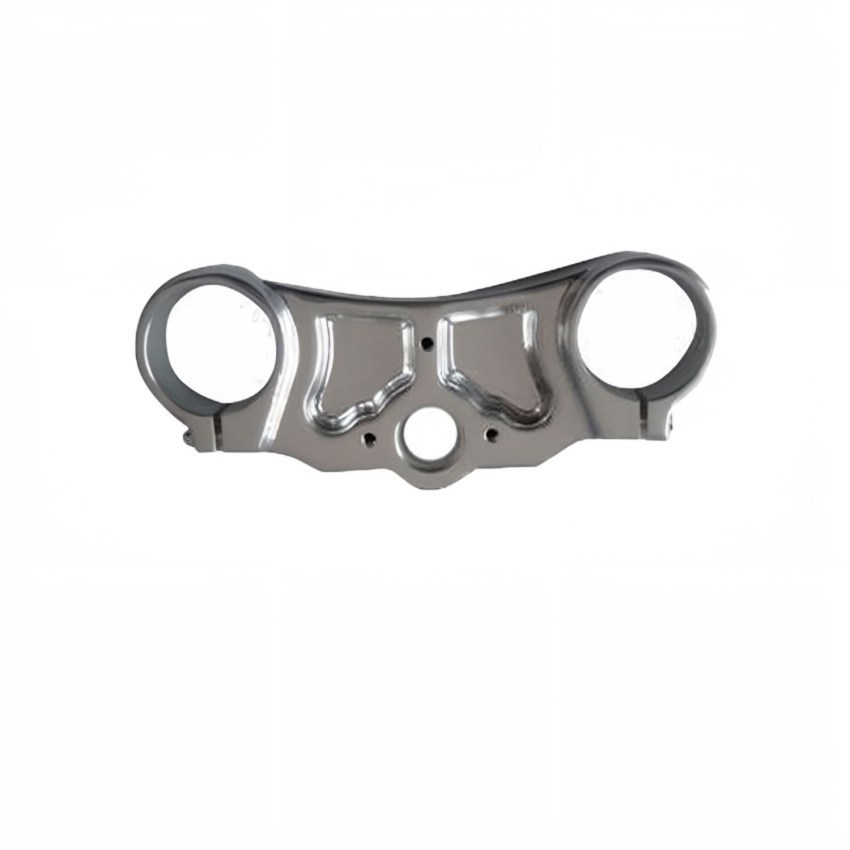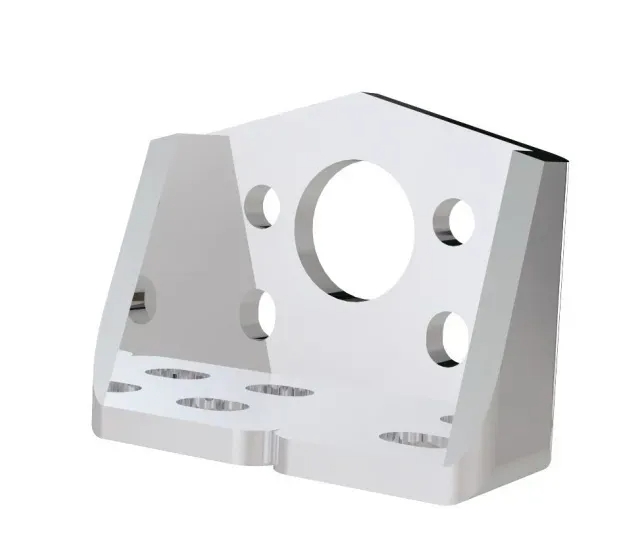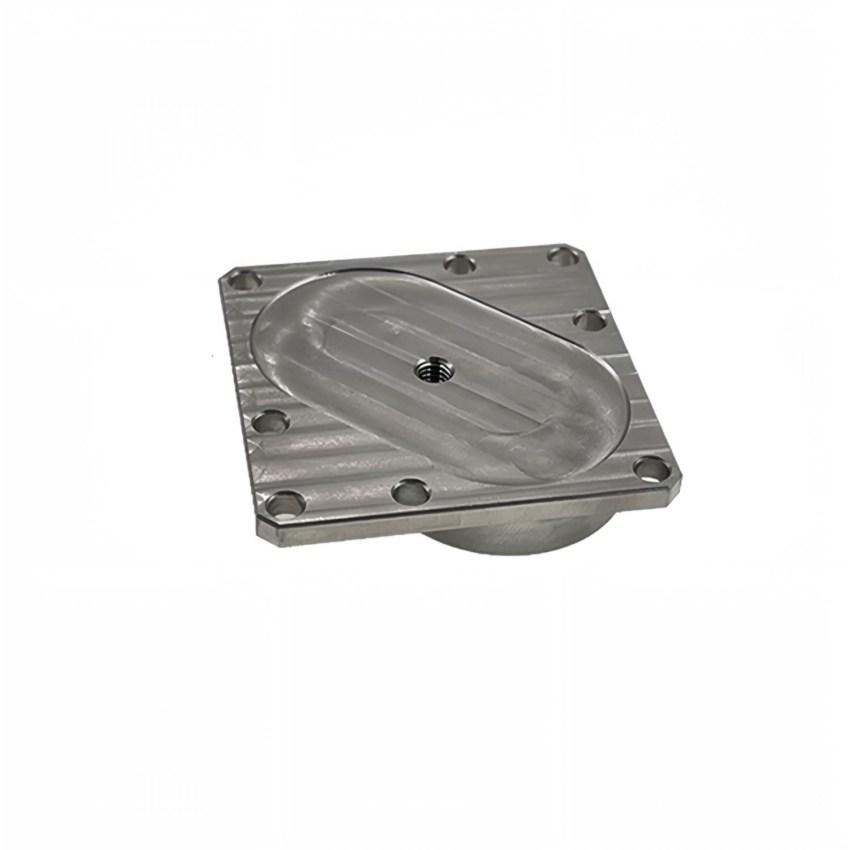Why Precision Sheet Metal is Essential for High-Quality Manufacturing
Release time:
2025-08-08
Why Precision Sheet Metal is Essential for High-Quality Manufacturing Table of Contents Introduction to Precision Sheet Metal The Importance of Precision in Manufacturing Advantages of Precision Sheet Metal Fabrication Applications of Precision Sheet Metal in Various Industries The Precision Sheet Metal Fabrication Process Materials Used in Precision Sheet

Why Precision Sheet Metal is Essential for High-Quality Manufacturing
Table of Contents
- Introduction to Precision Sheet Metal
- The Importance of Precision in Manufacturing
- Advantages of Precision Sheet Metal Fabrication
- Applications of Precision Sheet Metal in Various Industries
- The Precision Sheet Metal Fabrication Process
- Materials Used in Precision Sheet Metal
- Innovative Technologies in Precision Sheet Metal Fabrication
- Quality Control in Precision Sheet Metal Manufacturing
- The Future of Precision Sheet Metal in Manufacturing
- Frequently Asked Questions
- Conclusion
Introduction to Precision Sheet Metal
Precision sheet metal refers to the process of fabricating metal components with high accuracy and tight tolerances. This manufacturing technique plays a pivotal role in various industries, including aerospace, automotive, electronics, and more. The demand for precision in fabrication has surged due to the need for reliability, durability, and efficiency in manufactured products. In this article, we will delve into the essential aspects of precision sheet metal and its undeniable importance in achieving superior quality in manufacturing.
The Importance of Precision in Manufacturing
Precision in manufacturing is crucial for several reasons. First, it ensures product reliability. Components manufactured with high precision reduce the risk of failure in the field, leading to increased customer satisfaction and lower warranty costs. Second, precise manufacturing processes contribute to overall production efficiency. By minimizing waste and rework, manufacturers can optimize their operations and enhance profitability.
Furthermore, with the increasing complexity of designs and specifications, precision sheet metal becomes vital in meeting stringent industry standards. Adhering to precise tolerances ensures that parts fit together correctly, which is especially critical in applications such as aerospace and medical devices, where even minor deviations can have significant consequences.
Advantages of Precision Sheet Metal Fabrication
Precision sheet metal fabrication offers numerous advantages that make it a preferred choice in high-quality manufacturing.
Enhanced Accuracy and Consistency
One of the primary benefits of precision sheet metal is its ability to produce parts with enhanced accuracy and consistency. Advanced machinery and techniques, such as CNC laser cutting and automated bending, ensure that each component meets exact specifications.
Cost-Effective Production
While the initial investment in precision equipment may be higher, the long-term cost-effectiveness of precision sheet metal fabrication is significant. The reduction in material waste and the increased speed of manufacturing processes lead to lower overall production costs.
Versatility in Design
Precision sheet metal can accommodate a wide range of complex designs and shapes. This versatility allows engineers and designers to innovate without being constrained by manufacturing limitations, paving the way for new product development.
Superior Surface Finish
Components produced through precision sheet metal techniques often exhibit superior surface finishes. This not only enhances the aesthetic appeal of the product but also improves functionality, especially in applications requiring smooth surfaces for assembly or operation.
Improved Strength and Durability
Precision sheet metal fabrication techniques, such as cold forming and heat treatment, enhance the strength and durability of the final product. This is particularly important in industries where components are subjected to high stress and fatigue.
Applications of Precision Sheet Metal in Various Industries
Precision sheet metal finds applications across a wide range of industries, each with specific requirements and standards.
Aerospace Industry
In the aerospace sector, precision sheet metal is used to manufacture components such as brackets, enclosures, and structural parts. The stringent safety and performance standards necessitate high-precision fabrication to ensure reliability in flight.
Automotive Industry
The automotive industry relies heavily on precision sheet metal for producing body panels, frames, and various internal components. The need for lightweight yet strong materials is driving innovation in this field, making precision fabrication even more essential.
Electronics Industry
Precision sheet metal is integral in the electronics industry, where it is used to create housings, frames, and heat sinks. The ability to produce intricate designs with tight tolerances is vital for ensuring the performance and reliability of electronic devices.
Medical Devices
In the medical field, precision sheet metal fabrication is essential for creating surgical instruments and equipment housings. The need for sterilization and reliability in medical devices necessitates the high standards achieved through precision manufacturing.
The Precision Sheet Metal Fabrication Process
The fabrication process for precision sheet metal involves several key steps, each contributing to the overall quality of the final product.
Design and Prototyping
The first step in the precision sheet metal fabrication process is design and prototyping. Advanced CAD software allows engineers to create detailed designs that meet specific requirements. Prototyping helps refine these designs before moving to production.
Cutting Techniques
The cutting of sheet metal is a critical step in the fabrication process. Techniques such as laser cutting, waterjet cutting, and plasma cutting provide high precision and can accommodate various material types.
Bending and Forming
After cutting, the metal sheets need to be bent and formed into the desired shapes. CNC bending machines ensure that the angles and shapes are accurate, allowing for complex designs to be achieved.
Joining Techniques
Joining methods like welding, riveting, and adhesive bonding are employed to assemble the components. Each technique has its advantages and is chosen based on the specific requirements of the project.
Finishing Processes
Finally, finishing processes such as sanding, painting, or plating enhance the surface quality and protection of the metal parts. These finishing touches not only improve aesthetics but also contribute to the durability of the final product.
Materials Used in Precision Sheet Metal
The choice of materials in precision sheet metal fabrication is crucial. Various metals are utilized based on their properties and suitability for different applications.
Stainless Steel
Stainless steel is widely used due to its strength, corrosion resistance, and aesthetic appeal. It is essential in industries like medical devices and food processing.
Aluminum
Aluminum is favored for its lightweight and excellent corrosion resistance. Its versatility makes it suitable for a range of applications, from automotive components to consumer electronics.
Copper
Copper is known for its excellent electrical conductivity, making it a preferred choice for electronic components and heat exchangers.
Brass
Brass combines excellent machinability with good corrosion resistance, making it suitable for plumbing fittings and decorative applications.
Innovative Technologies in Precision Sheet Metal Fabrication
Advancements in technology continue to revolutionize precision sheet metal fabrication.
CNC Machining
Computer Numerical Control (CNC) machining automates the manufacturing process, allowing for high precision and repeatability. This technology significantly reduces human error and increases efficiency.
Laser Cutting Technology
Laser cutting technology provides unparalleled precision in cutting sheet metal. It allows for intricate designs with minimal material waste, making it a popular choice in high-quality manufacturing.
3D Printing
3D printing is emerging as a complementary technology in precision sheet metal fabrication. It enables rapid prototyping and the creation of complex geometries that would be difficult to achieve through traditional methods.
Quality Control in Precision Sheet Metal Manufacturing
Quality control is a critical aspect of precision sheet metal manufacturing. Implementing rigorous quality assurance protocols ensures that products meet industry standards and customer expectations.
Inspection Techniques
Various inspection techniques, such as coordinate measuring machines (CMM) and visual inspection, are utilized to assess the accuracy and quality of produced components. These inspections help identify any deviations from specified tolerances.
Continuous Improvement
Manufacturers often adopt a continuous improvement approach, utilizing feedback from quality control processes to enhance production methods and eliminate defects. Continuous training and development of staff also play a crucial role in maintaining quality standards.
The Future of Precision Sheet Metal in Manufacturing
Looking ahead, the future of precision sheet metal manufacturing is bright. As industries evolve, the demand for high-quality, precision-engineered components will continue to grow.
Integration of Smart Manufacturing
Smart manufacturing, characterized by the use of IoT and data analytics, is set to transform precision sheet metal fabrication. This integration will lead to greater efficiencies, reduced downtime, and enhanced decision-making based on real-time data.
Sustainability Trends
The push for sustainability will drive innovation in materials and processes used in precision sheet metal fabrication. Manufacturers will increasingly adopt eco-friendly practices, such as recycling scrap metal and utilizing energy-efficient technologies.
Emphasis on Customization
As customer demands shift towards personalized products, precision sheet metal fabrication will increasingly focus on customization. Advanced technologies will allow manufacturers to respond quickly to unique specifications and market trends.
Frequently Asked Questions
What is precision sheet metal fabrication?
Precision sheet metal fabrication is a manufacturing process that involves producing metal components with high accuracy and tight tolerances, typically using advanced machinery and techniques.
Why is precision important in manufacturing?
Precision is essential in manufacturing because it ensures product reliability, reduces waste and rework, and helps meet strict industry standards, ultimately leading to higher customer satisfaction.
What industries benefit from precision sheet metal?
Industries such as aerospace, automotive, electronics, and medical devices benefit significantly from precision sheet metal due to the need for high-quality and reliable components.
What materials are commonly used in precision sheet metal fabrication?
Common materials include stainless steel, aluminum, copper, and brass, each chosen for its specific properties suited to various applications.
How does quality control work in precision sheet metal manufacturing?
Quality control involves rigorous inspection techniques and continuous improvement practices to ensure that products meet specified tolerances and industry standards.
Conclusion
In conclusion, precision sheet metal is a cornerstone of high-quality manufacturing across multiple industries. Its ability to enhance accuracy, reduce costs, and provide versatility in design makes it an invaluable asset for manufacturers striving for excellence. As technology continues to advance and industries evolve, the importance of precision sheet metal will only increase, solidifying its role in the future of manufacturing. Emphasizing quality, innovation, and sustainability will pave the way for continued growth and success in this critical sector.
Key words:





